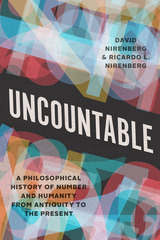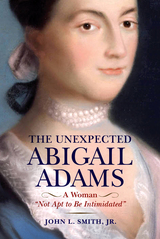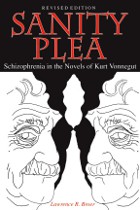

Grounded in ecofeminist theory, this literary analysis examines Walker’s evolving views on animals in relation to her discussions of other oppressed groups. Pamela B. June argues that Walker’s fiction can help readers understand and perhaps challenge American culture’s mistreatment of nonhuman animals. Walker has withstood criticism for her decision to abandon vegetarianism, and this book also problematizes the slippery territory of viewing writers as moral guides. Solidarity with the Other Beings on the Planet will appeal to readers in literary studies, ecofeminist studies, African American studies, and critical animal studies.
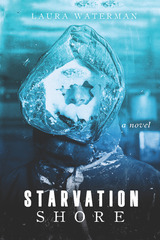
Drawing upon historic records, diaries, and letters of the men who inhabited the makeshift shelter they called Camp Clay, Laura Waterman reimagines the true story of polar explorers fighting for their lives and their sanity under dehumanizing conditions. This gripping, tragic tale of hunger, fear, and hope is told through the eyes of men at their worst—and most desperate—moments.
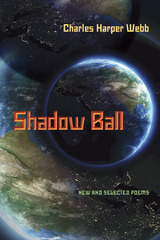

Webb is celebrated for his use of humor; yet even his funniest poems rise, as the best humor must, from serious concerns. Powered by an uncompromising but compassionate intelligence and an abiding wonder at the beautiful strangeness of the world, Sidebend World explores with clarity and vividness a wide range of emotions—love to hate, tenderness to brutality; yet, above all, Webb is a poet of praise. Metaphors of startling aptness and originality, a distinctive voice at once provocative and endearing, high musicality, propulsive energy, wild imaginative leaps, as well as mastery of diction from lyricism to street-speak, create a reading experience of the first order. These poems go down easy, but pack a wallop. As Robert Frost said poetry should do, Sidebend World "begins in delight and ends in wisdom."

It was an impossible crime: knock off an entire town—a huge plant payroll, all the banks, and all the stores—in one night. But there was one thief good enough to try—Parker. In The Score, Parker takes on his biggest job yet. All he needs are the right men, the right plan, and the right kind of help from Lady Luck. But as everyone knows, you can never count on that last one. This chilling caper could either be the perfect crime… or a set-up that would land him in jail — for life.
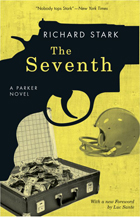
The robbery was a piece of cake. The getaway was clean. The only thing left to do is split the cash—then it all goes wrong. In The Seventh, the heist of a college football game turns sour and the take is stolen from right under Parker’s nose. With the cops on his tail, Parker must figure out who crossed him—and how he can pay the culprit back.

The hunter becomes prey, as a heist goes sour and Parker finds himself trapped in a shuttered amusement park, besieged by a bevy of local mobsters, in Slayground. There are no exits from Fun Island. Outnumbered and outgunned, Parker can’t afford a single miscalculation. He’s low on bullets and making it out alive is a long shot—but, as anyone who’s crossed his path knows, no one is better at playing higher stakes with shorter odds.
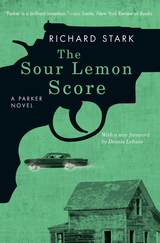

"There is so much that is impressive in Wilner's mature poems. In an era which has been labelled 'The End of History,' she examines history's less obvious lessons. If the past is to teach us, she seems to say, then we must re-invent and re-shape it."—Poetry
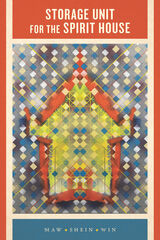
Assemblages of both earthly and noncorporeal possessions throughout the collection become resonant and alive, and Win must summon “a circle of drums and copper bells” to appease the nats who have moved into a long-ago family house. This careful curation of unlikely objects and images becomes an act of ritual collection that uses language to interrogate how pain in life can transform someone into a nat or a siren that lives on. Restrained lines request our imagination as we move with the poet through haunted spaces and the objects that inhabit them.
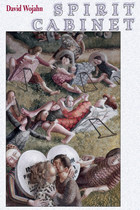
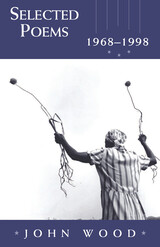

Yamamoto's disarming style matches the verbal economy of haiku, in which all meaning is contained within seventeen syllables. Her deft characterizations and her delineations of sexuality create a haunting story of a young girl's transformation from innocence to adulthood.
This casebook includes an introduction and an essay by the editor, an interview with the author, a chronology, authoritative texts of "Seventeen Syllables" (1949) and "Yoneko's Earthquake" (1951), critical essays, and a bibliography. The contributors are Charles L. Crow, Donald C. Goellnicht, Elaine H. Kim, Dorothy Ritsuko McDonald, Zenobia Baxter Mistri, Katharine Newman, Robert M. Payne, Robert T. Rolf, and Stan Yogi.
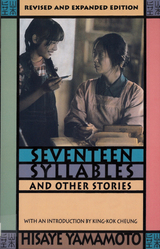
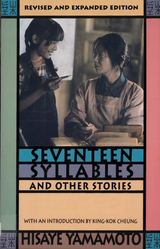
In addition to the contents of the original volume, this edition brings back into print the following works:
- Death Rides the Rails to Poston
- Eucalyptus
- A Fire in Fontana
- Florentine Gardens

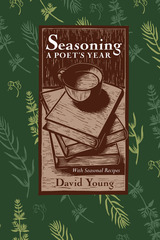
Set in northeastern Ohio, where the author has lived and worked for close to forty years, Seasoning demonstrates that an “unremarkable” place—no grand scenery, no special claims to beauty—can be the perfect setting in which to learn about animals, plants, food, geology, history, weather, and time. Coming to terms with place and time, and connecting them, the author suggests, may be our true task in life.
Among the many distinctive features of this lovely book are the recipes, arranged seasonally and revealing Young’s preference for natural foods prepared with care.
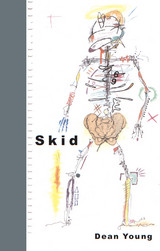
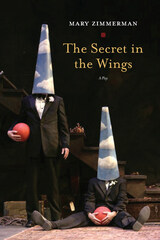
Mary Zimmerman’s The Secret in the Wings adapts a group of lesser-known fairy tales to create a theatrical work that sets their dark mystery against her signature wit and humor. The framing story concerns a child and the frightening babysitter with whom her parents leave her. As the babysitter reads from a book, the characters in each of the tales materialize, with each tale breaking off just at its bleakest moment before giving way to the next one.
The central tale is told without interruption, after which each previous tale is successively resumed, with each looming disaster averted. As in Zimmerman’s other productions, here she uses costumes, props, sets, and lighting to brilliant effect, creating images and feelings that render the fairy tales in all their elemental and enduring power.

“The mystery that Abughattas composes is always moving toward an impossible freeing of the self from its numerous frames. Yet frame by frame . . . she suspends our disbelief, catalogs those potentialities in an America always ready to shoot, direct, and produce the film of itself. Strip is ‘in love with possibility,’ ‘in praise of here I am, here I’ve been,’ USA style. Strip celebrates the body—its rise and fall, ebb and flow, in a carnival of parties—restlessly, shamelessly, searching for a way out…. Even as Abughattas claims that ‘I can’t believe sometimes I have a body,’ her poems teem with an awareness of the body’s unavoidable centrality in our lives—in how we view our lives, and how others view them; in how they progress, and how they end; in how they become meaningful, and how they are stripped of meaning. And no stripping escapes memory. Whether in terms of dispossession or sexuality, admiration or pity, Abughattas renders her treatment of the body with candor and poignancy. . . . The most startling moments in Abughattas’s poems, however, depend not on shocking or intimate details—but on the ‘I’ pulling away from the self, abandoning the ego, and gazing outward. She tries to see something else, to escape the body’s restraints.”
—Fady Joudah and Hayan Charara, from the Preface


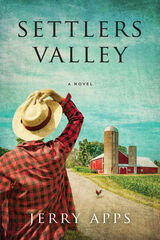
In this eminently readable story, Jerry Apps delves into the heart of small-town America. Reckoning with timely problems and opinions that divide us, he shows us the power in restoring our relationships with nature and our communities.
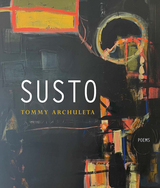
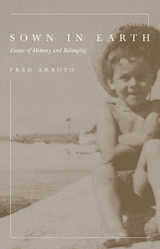
In Sown in Earth, Arroyo often roots his thoughts and feelings in place, expressing a deep connection to the small homes he inhabited in his childhood, his warm and hazy memories of his grandmother’s kitchen in Puerto Rico, the rivers and creeks he fished, and the small cafés in Madrid that inspired writing and reflection in his adult years. Swirling in romantic moments and a refined love for literature, Arroyo creates a sense of belonging and appreciation for his life despite setbacks and complex anxieties along the way.
By crafting a written journey through childhood traumas, poverty, and the impact of alcoholism on families, Fred Arroyo clearly outlines how his lived experiences led him to become a writer. Sown in Earth is a shocking yet warm collage of memories that serves as more than a memoir or an autobiography. Rather, Arroyo recounts his youth through lyrical prose to humanize and immortalize the hushed lives of men like his father, honoring their struggle and claiming their impact on the writers and artists they raised.
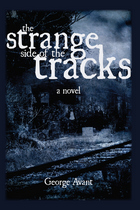
Some kids have to grow up fast. This is the story of Lonnie Tobin, one such young man. Weary of the physical abuse his mother is subjected to from his father, he takes matt ers into his own hands. Convincing her to flee their fearful home life, son and mother sneak away in the night to the small town of Rocky Branch, where they find peace with her family. It is a corner of the world he thought they had left behind forever. But mysteries abound in this little wooded village, and an unexpected adventure begins when word of a nightly monster on the loose stirs fear among the residents. Young Lonnie soon forgets about his father and becomes fascinated by the story, only to find he might be spending a litt le too much time on The Strange Side of the Tracks.
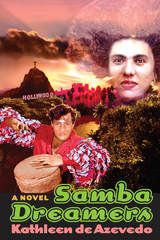
When José Francisco Verguerio Silva arrives at LAX, fleeing the brutal dictatorship in his native Brazil, he is determined to become Americanized at all costs. He lands a job driving a Hollywood tour bus and posing as Ricky Ricardo. He marries a blonde waitress and becomes the father of twins. Yet happiness remains elusive for Joe as he is haunted by flashbacks of prison torture. And soon a torrid affair with Rosea Socorro Katz, the crazed daughter of Hollywood’s Brazilian star Carmen Socorro, proves to be even more dangerous than the life he has fled.
Rosea spent her childhood watching her mother unravel as the celebrity system toyed with and eventually destroyed her career. Carmen had always claimed to be descended from Amazons, the woman warriors of legend, but she was tamed by Hollywood. Not Rosea. She has just finished serving jail time for setting fire to the home of her ex-husband—in an attempt to destroy his collection of Brazilian artifacts—and sets out to salvage her life.
Along the way, she manages to tear down the lives of everyone she meets. The Brazil of the imagination is shattered in this novel of two tortured souls wrestling with the myths of movies, politics, and the American Dream. Laced with fantastic tales of bird-boys and cannibal rituals, it spins a compelling story of desperation as it reminds us that American freedom and the myth of unbridled opportunity can also consume and destroy.
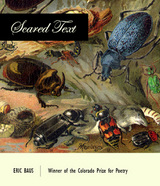
Published by the Center for Literary Publishing at Colorado State University
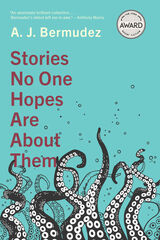
At once playfully dark and slyly hopeful, Stories No One Hopes Are about Them explores convergences of power, privilege, and place. Characters who are ni de aquí, ni de allá—neither from here nor there—straddle competing worlds, disrupt paradigms, and transition from objects of other people’s stories to active subjects and protagonists of their own. Narratives of humanity and environment entwine with nuanced themes of colonization, queerness, and evolution at the forefront. Big things happen in this collection. But it’s also a collection of small intimacies: misremembered names, chipped teeth, and private rituals; unexpected alliances and barely touched knees beneath uniform skirts; minutiae of the natural world; incidents that quietly, achingly, and delightfully transgress the familiar.
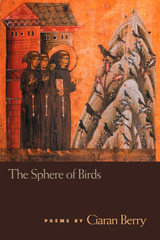
The Sphere of Birds, Ciaran Berry’s debut collection of poems, effortlessly moves back and forth between here and there, then and now, the personal and the historic, the modern and the mythic.
Berry imagines the transatlantic journeys of John James Audubonand reveals his own heartfelt experience moving from his first house. The poems take as their subject such varied experiences as an eye exam in Manhattan and chasing rabbits around a beach in Donegal. These poems have a strong sense of place, whether it’s the imagined space of Coney Island in 1903 or the playground of Berry’s childhood convent school.
The Sphere of Birds delights in forging unlikely links, earthed in the stuff of paintings and in the lives of poets, artists, and the occasional saint. Drawing on the poet’s life in Ireland and the United States, the poems explore the joy and grief found in those places.
Moving from rural Ireland to the heart of New York City, from local detail to historical specifics, and from the experienced occasion to the imagined or interpreted event, Berry’s poems effectively master shifts in both time and space. Berry delves into the lives of artists, obscure historical figures, and other poets for inspiration. He embraces elements of both Irish and American poetry, paying tribute as much to the spirit of Larry Levis as to that of W. B. Yeats.
Accessible, immediate, and visceral, The Sphere of Birds offers a musicality that is increasingly rare in contemporary poetry.
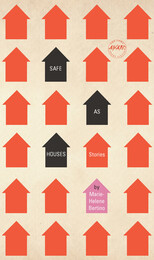
All homes are not shelters. But then again, some are. Welcome to the home of Marie-Helene Bertino.
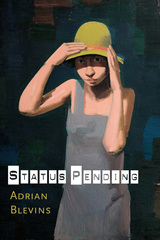

A detective’s red thread spiderweb mapping the constellations among parenting, capitalism, aging, and ghosts, this stunning collection is wistful, unmoored, glamorous, and immense. These tour-de-force poems simultaneously capture an impression of emptiness and pleasure, of existing in a liminal space filled with both hollowness and potential.
It was difficult to tell when the world broke.
—Excerpt from “Ravine”
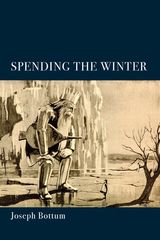
“Poems so severely beautiful that they become unforgettable after one reading. . . . If you’re a reader who loves poetry whatever mood it’s in, just open Spending the Winter anywhere to find poems that hurt, enlighten, and delight.” —Rhina P. Espaillat, author of Rehearsing Absence and winner of the T.S. Eliot Prize
“Joseph Bottum is a brilliant formalist, and to read him is to enter the world of the tried-and-true classics, all achieved with an amazingly contemporary ring. His Spending the Winter is a delight. Here is a poetry of elegy, humor, wit, political savvy, and vast learning.” —Paul Mariani, author The Great Wheel and winner of the John Ciardi Award
“Joseph Bottum’s Spending the Winter is a throwback to a time when lovers of poetry outside the literary establishment looked for poetry of depth, wit, and craft from the likes of Auden and Larkin. This is poetry from another age—an age when we expected intellectual, religious, and literary significance from our verse.” —A.M. Juster, author of Wonder and Wrath and winner of the Willis Barnstone Translation Prize
“Spending the Winter is a word-lover’s dream: Joseph Bottum’s poems pierce, probe, dazzle, and delight. They will open the eyes of your soul.” —Karen Swallow Prior, author of On Reading Well
“When reading Spending the Winter, I recalled C.S. Lewis’s description of joy as a wanting for something that is beyond this world. There’s a sense in these poems that things around us are fleeting, yet for that reason, the poems ask us to pay all the more attention.” —Jessica Hooten Wilson, author of Giving the Devil his Due
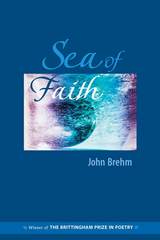
"Fun, wisdom, tasty language. Sea of Faith has real subways in it as well as real rivers, mountains and dogs, scoops of heartbreak, sightings of beauty. Yes, sad or happy, the poems are alive. Sea of Faith was a complete pleasure for me to read." —Alicia Ostriker, author of The Crack in Everything
In a masterful blending of lyric and narrative, Sea of Faith ranges widely across interior states and external worlds. From the Sierra Nevadas to New York City subways, from an imagined friendship with Lao Tzu to a rueful meditation on Coney Island, from a comic and poignant classroom discussion of "Dover Beach" to a sexual fantasy spawned by a tedious poetry reading, John Brehm’s poems explore the human predicament with tenderness, compassion, and unforgettable humor.
"The poems in Sea of Faith present us with a vivid dramatic voice, one determined to engage with a world that often seems intangible and remote, and to resist a world that seems all too real and disappointing. The speaker here is both self-mocking and self-accepting, taking his concerns seriously but always distant enough from them to regard them as a small part of a larger human story, a story we recognize at once to be our own."—Carl Dennis, Brittingham Prize judge and author of Practical Gods
"John Brehm writes on a knife edge. His voice would be ironic if it weren’t for the sustained emotion, the opening to the unknown, the ‘electric calm.’ These elegant poems wear their eloquence lightly; the stakes are high. Sea of Faith is an unforgettable book."—D. Nurkse, author of The Fall
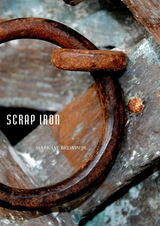
South Jersey farmland, flooded and made an island. Through landscapes and captivating visuals we begin Mark Jay Brewin’s debut collection of poems. Scrap Iron quickly and fluidly moves from this isolated plot of land—the poet’s childhood home—to the memories associated with that place, its people, and his youth. Throughout the volume, Brewin’s attention to sound and cadence offers the reader a burning exploration of beautiful imagery, while also providing a sharp contrast to the sometimes harsh and dark subject matter. He asks how one grows while remaining rooted. Confronting the age-old question of whether one can ever really go home again, Brewin’s soft, prayerful, and thoughtful approach provides the reader with an answer: Whether it is possible or not, the wish to return will always remain.
The intricacies and complexities of human relationships—especially between family members—are at the forefront of Scrap Iron. Brewin acknowledges the tender violence that often exists within familial relationships and highlights the fragility of not only these connections, but of the land, of memory, and of the future. While some poems may focus on tenuous ties, the tone of Brewin’s work as a whole is one of hopefulness. His poetry reminds us that to move is not to abandon, to question is not to criticize, and to love is to at once remember and forget.

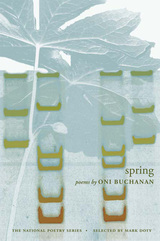
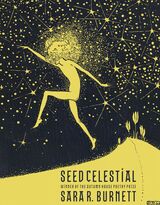
This collection weaves together themes of motherhood, immigration, social transformation, and interrogation. Throughout Seed Celestial, Sara R. Burnett writes haunting reflections on origins—of myth and memory, language and country, earth and mothers—as she looks to an uncertain future.
Bringing together contemporary issues of climate change, gun violence, and feminism while working from her own experience of raising a young daughter, she writes, “You were inside my body / while I was outside; / outside was everything else.” Burnett vividly renders her own origin story as an immigrant’s daughter using the myths of Demeter and Persephone. This book is a love letter to the earth the way only a mother can write it: appreciating all its faults while seeing its beauty. Burnett offers a poetry collection that is tender, and honest, akin to having an intimate conversation with a friend who tells us what we know to be true about ourselves, our twin capacities for love and violence, and what we don’t. She intertwines our violent, complicated world with the uncanny human capacity for hope and describes the awe of a world recreating itself again and again while wondering about all we lose and leave behind, especially for the next generation.
Seed Celestial is the winner of the 2021 Autumn House Press Poetry Prize, selected by Eileen Myles.


In her debut short-story collection A Small Apocalypse, Laura Chow Reeve examines cultural inheritance, hybridity, queerness, and the stickiness of home with an eye for both the uncanny and the realistic: human bodies become reptilian, queer ghosts haunt their friends, a young woman learns to pickle memories, and a theater floods during an apocalyptic movie marathon. The characters in A Small Apocalypse weave in and out of its fourteen stories, confronting their sense of otherness and struggling to find new ways of being and belonging. Heavily steeped in the swampy, feral heat of Florida, these stories venture beyond the problems of constructing an identity to the frontier of characters living their truth in a world that doesn’t yet have a place for them.
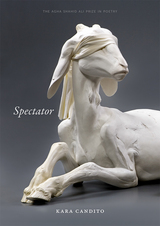
Although it ends with a marriage, Kara Candito’s second poetry collection is anything but a comedy. At the book’s center is the struggle of a U.S. citizen and a Mexican citizen to find a common space and language in their relationship while navigating the U.S. immigration system, a process that sometimes requires magical thinking just to endure. By employing a kind of documentary poetics that views the application process through different angles and perspectives, Candito crafts discourses around xenophobia, otherness, and national and ethnic identity.
“In the waiting room of the third government office, / you will invent your own religion,” writes Candito in “Ars Amatoria: So You Want to Marry a Foreign National,” a tragicomic sequence written in Roman-numeric fragments reminiscent of an official document’s formatting. Interspersed with moments of lyric urgency (“I am here to suffer more beautifully”) and disconcerting cinematic observation (“One wore an assault rifle across his back, // another pointed a video camera at our faces.”), Spectator charts the plural self’s course through a world of airplane travel, drug wars, and customs forms.
From Italy to Boston, Lorca’s Granada to New York, and the dusty streets of Mexico City to the snowy parking lots of the Midwest, the speakers of Spectator probe the jagged boundaries between past and present, observer and observed, and political and personal. As such, the book is an homage to anyone who’s been displaced or redefined by bureaucratic systems of power.
The poem "Monologue during a Blackout" (which appears in Spectator) was the winner of a Pushcart Award in 2014.
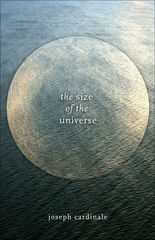
The landscape of this novel in stories—Joseph Cardinale’s first book-length work of fiction—is as familiar as childhood yet beguilingly surreal. The question of whether or not the child in the first fiction and the man in the last story are the same person—and whether any person is the same from one moment to the next—is perhaps the book’s main question.
In prose as spare as it is meticulous, The Size of the Universe conjures an elegant labyrinth of time, space, and memory, in which a wavering self, a self on the verge of becoming nothing, seeks a safe haven from the throes of near-religious ecstasy. It is a debut work that is inviting, perplexing, and bold.

Carr’s essays push past familiar boundaries between the personal/confessional and experimental/conceptual strains in American poetry. Pressing philosophical inquiries into the nature of gender, motherhood, fear, the body, and violence up against readings of twentieth- and twenty-first-century poets, she asks us to consider the political and affective work of poetry in a range of contexts. Carr reports on her own practices, examining her concerns for research and narrative against her investment in lyric, as well as her history as a dancer and her work as curator and publisher. Carr’s breadth of inquiry moves well beyond the page, yet remains grounded in languages possibilities.
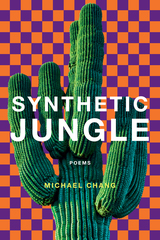
A vital breath of life arrives in American poetry with Synthetic Jungle, the latest collection from acclaimed poet Michael Chang. With poems in a register both hilarious and scathing, Synthetic Jungle effortlessly bashes convention while simultaneously rebuilding the language we use to communicate our fears and joys.
Synthetic Jungle is a collection written by a brilliant jester who winks at you as you catch their every reference before sharing a laugh at your own self-satisfaction. Themes of identity, sexuality, and literacy play out in a dizzying rhythm of microtheaters. Readers will find themselves giggling, snorting, and guffawing their way through this work: whether at a repudiation of the literary landscape or a critique of a failing justice system, to laugh along with Chang is to recognize your mistakes and, ultimately, grow from them.
Fractal and kinetic in the quick-witted spirit of John Ashbery and Emily Dickinson, Chang’s tender poems dance around, between, and through the personal and philosophical. Synthetic Jungle is as sweet as it is grand, and beneath its sarcastic grin reverberates an immense, open heart.
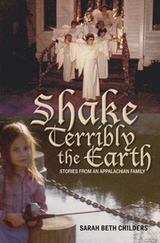
In a thoughtful, humorous voice born of Appalachian storytelling, Childers brings to life in these essays events that affected the entire region: large families that squeezed into tiny apartments during the Great Depression, a girl who stepped into a rowboat from a second-story window during Huntington’s 1937 flood, brothers who were whisked away to World War II and Vietnam, and a young man who returned home from the South Pacific and worked his life away as a railroad engineer.
Childers uses these family tales to make sense of her personal journey and find the joy and clarity that often emerge after the earth shakes terribly beneath us.
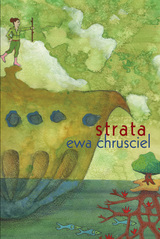


What would I
think, coming
up after
my world
had evaporated?
I'd wish
I were water.
The Sorrow Apartments is home to spare and uncanny lyricism––as well as leaping narratives of mystery and loss and wonder. These poems race at once into the past and the possible. And yet, instead of holding things up to the light for a better view, Cohen lifts them to the dark and light, as in "Acapulco," where an unlikely companion points out, “as men tend to, / the stars comprising Orion’s belt — / as if it were the lustrous sparks and not / the leveling dark that connects us.” For a poet who has been called unfashionable from the get-go, unfashionable never looked so good.

"I couldn't put it down."
---Barbara Kingsolver
In 1955, Mary and Jim Leader have the American dream: careers in medicine; a young and healthy family; and even a vacation home---a shabby resort far from bustling Chicago. But one hot afternoon changes everything. Mary, now a widow, must find a path out of her grief into a future for herself and five small children.
In Michigan to sell the resort, Mary sees seven hawks riding the storm winds over the lake. This place, she thinks, can heal them with its wild beauty, so she moves her family to the northern lakeshore.
But Mary has forgotten what it's like to live in a tiny rural community, where almost everyone has a stake in maintaining the status quo. Secrets are kept at great cost as Mary's children often struggle to raise themselves. A coming-of-age story for each member of the family, this is a novel of quiet heroism and the power of personal freedom.
Praise for Marjorie Kowalski Cole and her previous novel, Correcting the Landscape:
". . . her writing is simple, vivid and gorgeous."
---Eugene Register-Guard
". . . a remarkable new talent. Critics have lined up to praise the book."
---Tucson Citizen
"Cole's style is subtle but engrossing . . . It is quite a debut."
---Booklist
Cover illustration: ©iStockphoto.com/ImagineGolf
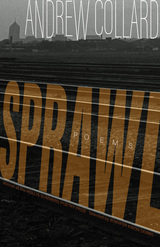

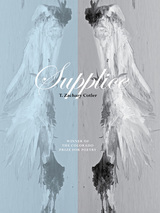
Winner of the 2014 Colorado Prize for Poetry, Supplice is the second installment in T. Zachary Cotler’s sonnet sequence that began with Sonnets to the Humans.These are amatory sonnets, but with love and rhyme tortured into broken and boneset textures. Supplice herself, the dark lady of these poems, is difficult to pin down with an epithet. Is she the angel of reality, banality, popular culture, pornography, uncertainty, or economic and environmental crisis? She has something to do with the history of cruelty and pain, with the devaluation of traditional ideas of beauty, and with the silence and science that have replaced divinity.
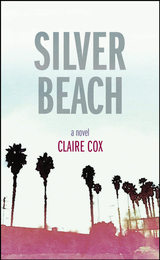

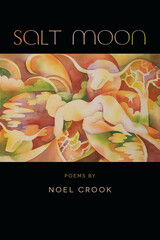
Crab Orchard Review First Book Prize
Co-Winner, Julie Suk Prize
Finalist, INDIEFAB Book fo the Year
Throughout Salt Moon, Noel Crook forges the kind of tragic vision Howard Nemerov described as the mark of our finest poets: drawing on myth and memory, Crook’s fierce lyrics reveal a world that is at once “hopeless and beautiful . . . giving equal emphasis to both words.” Sacrifice and betrayal, parental love and patricide, unleashed desire and cornered despair—these antitheses fuel Crook’s Ovidian imagination, which ranges freely from Comanche raids in Texas to a slave plantation in North Carolina, from a carpet maker in Istanbul to beggars in Delhi, from her daughter’s hospital room to the war in Iraq. Rendered in unforgettable images, Salt Moon is that rare book which grows richer with each reading.

Beyond their den’s walls, the market reigns, and the societal structure of infinite calculation and infinite exchange has rendered contemporary life meaningless. As Toby and Candy separately descend into drug addiction and prostitution, they find their efforts to defy the American economic superstructure futile, and Candy, again, is alone. “I’m going to die in here, I say, to no one.” The transcription of a mute prayer, Steady Diet of Nothing is a stark, vital work that requires our attention. “I’m awake or else I’m dreaming,” Candy narrates. “There’s a knock on the door. The phone rings forever but I can’t put the receiver down.” It keeps the line open as long as it can.

In this poetry collection, JD Debris focuses on characters who live on society’s outskirts and demand greater visibility in the face of marginalization. At the book’s heart are extended narrative elegies for two musicians. First, the poet follows Mexican singer and songwriter Chalino Sánchez as he avenges his sister’s sexual assault, and then he turns to Gato Barbieri, an influential Argentine tenor saxophonist who is haunted by a shadowy “man in dusk-colored glasses.” As these musicians question their purpose, we as readers are invited to reflect on our lives, our legacies, and ourselves.
The Scorpion’s Question Mark is personal and mythological, representational and abstract. These formally inventive and metrically attuned poems compose a range of contrasts—boxers Manny Pacquiao and Marvelous Marvin Hagler appear alongside Tupac and Herman Melville, and apparitions of the Virgin Mary manifest in both human and mirage-like forms on public beachfronts. Looking to the scorpion’s tail that forms the shape of a question mark, Debris seeks to occupy uncertain space within the poems, bending forms to find both expansiveness and tension.
The Scorpion’s Question Mark was the winner of the 2022 Donald Justice Poetry Prize.
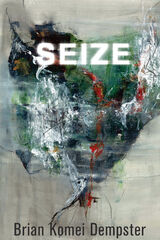
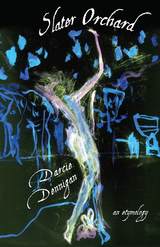
In Slater Orchard, a cleaning woman navigates a half-imaginary world ravaged by industrial waste and pollution. As she labors to grow pear trees in a dumpster, appearances unravel around and within her, and the orchard becomes a burial ground. We begin to question both the reliability of the narrator and of consensual reality.
With sharp wit and precise diction, Darcie Dennigan calls on and works in the lineage of great modernist women, from Clarice Lispector to Marie Redonnet. Slater Orchard is thoroughly contemporary in its themes, however, evincing dire questions of rampant capitalism and climate change that are rapidly changing our world and the exigencies of living in it.


Adept at capturing the experience of the upper-middle-class African-American, Diamond lays out two families' worth of secrets in this precise play. With only six characters, she constructs a vivid weekend of crossed pasts and uncertain but optimistic futures. On Martha's Vineyard, an affluent African-American family gathers in their vacation home, joined by the housekeeper's daughter, who is filling in for her mother. The family patriarch is a philandering physician; one of his sons has followed in his footsteps, while the other, after numerous false starts in a variety of careers, is a struggling novelist. Both bring along their current girlfriends, to meet the family for the first time. With such highly--perhaps over--educated vacationers, the conversation and the barbs fly, on subjects ranging from race to economics to politics. But there is also more than enough human drama, which reaches its climax when an old family secret comes out. Through lively exchanges and simmering wit, the family tackles a history filled with complications both within the family and in the outer world.
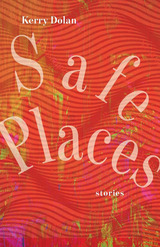
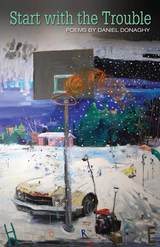

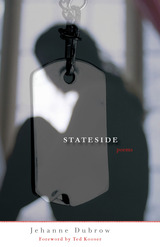
Winner, 2012 Alice Fay Di Castagnola Award from the Poetry Society of America
Winner, Individual Artist's Award from the Maryland State Arts Council
First Prize, Anna Davidson Rosenberg Poetry Award for Poems on the Jewish Experience (for three poems from her manuscript-in-progress, "The Arranged Marriage")
Although the poems in Stateside are concerned with a husband's deployment to the war in Iraq, Jehanne Dubrow's riveting collection is driven more by intellectual curiosity and emotional exploration than by any overt political agenda. The speaker in these poems attempts to understand her situation within the long history of military wives left to wait and wonder – Penelope is a model, but also a source of mystery. These poems are dazzling in their use of form, their sensual imagery, and their learnedness, and possess a level of subtlety and control rarely found in the work of a young poet. Dubrow is fearless in her contemplation of the far-reaching effects of war, but even more so in her excavation of a marriage under duress.
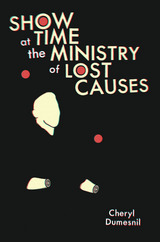
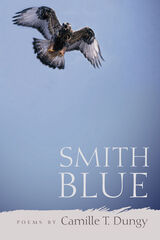
In Smith Blue, Camille T. Dungy offers a survival guide for the modern heart as she takes on twenty-first-century questions of love, loss, and nature. From a myriad of lenses, these poems examine the human capability for perseverance in the wake of heartbreak; the loss of beloved heroes and landscapes; and our determination in the face of everyday struggles. Dungy explores the dual nature of our presence on the planet, juxtaposing the devastation caused by human habitation with our own vulnerability to the capricious whims of our environment. In doing so, she reveals with fury and tenderness the countless ways in which we both create and are victims of catastrophe.
This searing collection delves into the most intimate transformations wrought by our ever-shifting personal, cultural, and physical terrains, each fraught with both disillusionment and hope. In the end, Dungy demonstrates how we are all intertwined, regardless of race or species, living and loving as best we are able in the shadows of both man-made and natural follies.
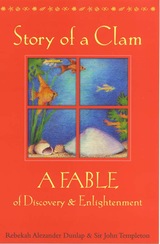
Story of a Clam is a special, magical tale of an egotistical clam who thinks he and his community are the center of the universe. It offers us the artistry of the written word, creating an adventure in evolving consciousness. In an exciting series of events, the clam becomes aware that "there is more to life than you presently know and experience."
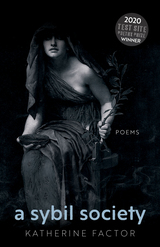
In a time when only a select few are prosperous, A Sybil Society paints a portrait of the present moment and unveils a restless truth. The collection is fearless in the face of convention and gives readers a sense of devastating sorrow in a world gone mad.
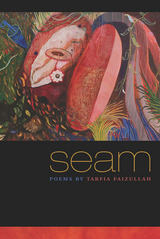
The poems in this captivating collection weave beauty with violence, the personal with the historic as they recount the harrowing experiences of the two hundred thousand female victims of rape and torture at the hands of the Pakistani army during the 1971 Liberation War. As the child of Bangladeshi immigrants, the poet in turn explores her own losses, as well as the complexities of bearing witness to the atrocities these war heroines endured.
Throughout the volume, the narrator endeavors to bridge generational and cultural gaps even as the victims recount the horror of grief and personal loss. As we read, we discover the profound yet fragile seam that unites the fields, rivers, and prisons of the 1971 war with the poet’s modern-day hotel, or the tragic death of a loved one with the holocaust of a nation.
Moving from West Texas to Dubai, from Virginia to remote villages in Bangladesh and back again, the narrator calls on the legacies of Willa Cather, César Vallejo, Tomas Tranströmer, and Paul Celan to give voice to the voiceless. Fierce yet loving, devastating and magical at once, Seam is a testament to the lingering potency of memory and the bravery of a nation’s victims.
Winner, Great Lakes Colleges Association New Writers Award, 2014
Winner, Binghamton University Milt Kessler Poetry Book Award, 2015
Winner, Drake University Emerging Writers Award, 2015

Kate M. Farlow wrote this book with the goal of giving hearing parents hope that their deaf children would be able to lead happy and productive lives. She sought to raise awareness of the benefits of deaf schools and was an early advocate for the use of American Sign Language and of bilingual education. The Christian influence on the school and on the author is strongly present in her writing and reflects an important component of deaf education at the time. Descriptions of specific signs, games, ASL story nights, and other aspects of the signing community during the 1870s will be of interest to modern students and researchers in linguistics, deaf education, Deaf studies, and Deaf history. Farlow’s work reveals a sophisticated, early understanding of the importance of access to language, education, and community for deaf individuals.
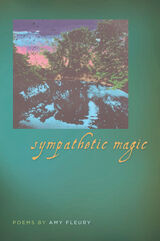
Amy Fleury’s bewitching new collection of poems, Sympathetic Magic, unveils the everyday manifestations of sympathy as well as the connections wrought by “sympathetic magic”—that indelible tether that binds people, places, and objects across time and distance. Fleury’s lyrics journey across the landscapes of childhood and old age, body and spirit, past and future, exploring the boundless permutations of sympathy as it appears in the most surprising locations. Connections reveal themselves in the aggressive silence of the small town or the round penmanship of a loved one, and echo throughout the solitude and regeneration of the forest as well as the antiseptic air of the hospital. At the center of these travels lies the narrator, stretching her limbs from the heart of the heartland, her body a compass summoning us from all directions, emphasizing with tender simplicity that “we all live under the self-same moon, no matter the phase.”

The latest collection from award-winning poet Vievee Francis, The Shared World imagines the ideas and ideals and spaces of the Black woman. The book delves into inherited memories and restrictions between families, lovers, and strangers and the perception and inconvenient truth of Black woman as mother—with or without child. Francis challenges the ways in which Black women are often dismissed while expected to be nurturing. This raw assemblage of poetic narratives stares down the oppressors from within and writes a new language in the art of taking back the body and the memory. These poetic narratives are brutal in their lyrical blows but tender with the bruised history left behind. “You can’t stop this / song,” she writes. “More hands than yours have closed / around my throat.”
Francis’s lyric gifts are on full display as she probes self-discovery, history, intimacy, and violence. Her voice encompasses humor and gravity, enigma and revelation. What emerges is a realm of intertwined experiences. “The secret to knowing the secret is to speak,” she concludes, “but we too often tell / the stories of no matter and avoid the one story that does matter. / In truth, we are bound by one story, so you’d think by now / we’d tell it, at least to each other.”
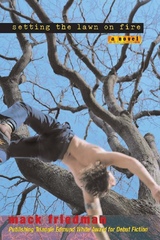
Setting the Lawn on Fire, the first novel by critically acclaimed writer Mack Friedman, trails its narrator through his obsessions with sex, drugs, art, and poison. Ivan, a young Jewish boy from Milwaukee, embarks on a journey of sexual discovery that leads him from Wisconsin to Alaska, Philadelphia, and Mexico through stints as a fishery worker, artist, and finally a hustler who learns to provide the blank canvas for other people’s dreams. The result is a new kind of coming-of-age story that sees passion from every angle because its protagonist is every kind of lover: the seducer and the seduced, the pornographer and the model, the hunter and the prey, the trick and the john. In the end, Setting the Lawn on Fire is also something rare—a fully realized, contemporary romance that illuminates the power of desire and the rituals of the body, the brain, and the heart that attempt to contain our passions.
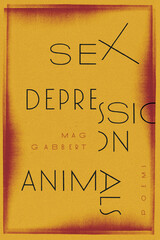
In SEX DEPRESSION ANIMALS, Mag Gabbert redefines the bestiary in fiery, insistent, and resistant terms. These poems recast the traumas of her adolescence while charting new paths toward linguistic and bodily autonomy as an adult. Using dreamlike, shimmering imagery, she pieces together a fractured portrait of femininity—one that electrifies the confessional mode with its formal play and rich curiosity. Gabbert examines the origin of shame, the role of inheritance, and what counts as a myth, asking, “What’s the opposite of a man? / A woman? A wound? The devil’s image?”

In Small Altars, Justin Gardiner delves into the world of comic books and superheroes as a means for coming to terms with the many struggles of his brother’s life, as well as his untimely death, offering a lyric and honest portrayal of the tolls of mental illness, the redemptive powers of art and familial love, and the complex workings of grief.
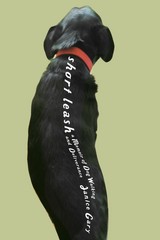
Janice Gary never walked alone without a dog - a big dog. Once, she was an adventurer, a girl who ran off to California with big dreams and hopes of leaving her past behind. But after a brutal rape, her youthful bravado vanished, replaced by a crippling need for safety. When she rescues a gangly Lab-Rottweiler pup,Gary is sure she’s found her biggest protector yet. But after Barney is attacked by a vicious dog, he becomes a clone of his attacker, trying to kill any dog that comes near him. Walking with Barney is impossible. Yet walking without him is unthinkable.
After years of being exiled by her terror and Barney’s defensiveness, Janice risks taking her dog to a park near the Chesapeake Bay. There, she begins the messy, lurching process of walking into her greatest fears. As the leash of the past unravels, Barney sheds the defensive behaviors that once shackled him and Gary steps out of the self-imposed isolation that held her captive for three decades. Beautifully written, Short Leash is much more than a “dog story” or a book about recovering from trauma. It is a moving tale of love and loss, the journey of a broken soul finding itsway toward wholeness.

A writer and former ski jumper facing a terminal diagnosis takes one more leap—into a past of soaring flights and broken family bonds
A brilliant ski jumper has to be fearless—Jon Bargaard remembers this well. His memories of daring leaps and risks might be the key to the book he’s always wanted to write: a novel about his family, beginning with Pops, once a champion ski jumper himself, who also took Jon and his younger brother Anton to the heights. But Jon has never been able to get past the next, ruinous episode of their history, and now that he has received a terrible diagnosis, he’s afraid he never will.
In a bravura performance, Peter Geye follows Jon deep into the past he tried so hard to leave behind, telling the story he spent his life escaping. It begins with a flourish, his father and his hard-won sweetheart fleeing Chicago, and a notoriously ruthless gangster, to land in North Minneapolis. That, at least, was the tale Jon heard, one that becomes more and more suspect as he revisits the events that eventually tore the family in two, sending his father to prison, his mother to the state hospital, and placing himself, a teenager, in charge of thirteen-year-old Anton. Traveling back and forth in time, Jon tells his family’s story—perhaps his last chance to share it—to his beloved wife Ingrid, circling ever closer to the truth about those events and his own part in them, and revealing the perhaps unforgivable violence done to the brothers’ bond.
The dream of ski jumping haunts Jon as his tale unfolds, daring time to stop just long enough to stick the landing. As thrilling as those soaring flights, as precarious as the Bargaard family’s complicated love, as tender as Jon’s backward gaze while disease takes him inexorably forward, Peter Geye’s gorgeous prose brings the brothers to the precipice of their relationship, where they have to choose: each other, or the secrets they’ve held so tightly for so long.
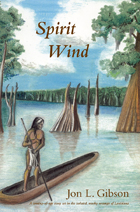
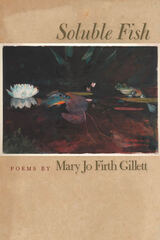
Soluble Fish transports readers to a place of discovery, exploring issues of borders, familial and love relationships, and other aspects of being human. Mary Jo Firth Gillett layers her poems in rich metaphor as she searches for meaning in everyday life. Contemplating a range of topics from teaching poetry to watching her father filet a fish, Gillett’s humorous and playful collection celebrates language and life.
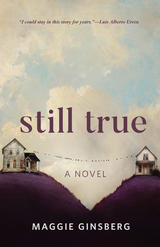
When ten-year-old Charlie Taylor arrives at Jack’s workshop shortly thereafter, he’s not the first kid in town to need help with a flat tire, and Jack gladly makes the repair to his bike. The Taylors are new to Anthem, and Jack soon discovers that Charlie and his mom, Claire, are struggling to fit in, even as Charlie’s dad, Dan, is thriving in his new job. Extending friendship and kindness, as well as introductions around the local café, Jack assumes a grandfatherly role. What he doesn’t see is the drinking that Claire hides from everyone, or the secret son that Lib has allowed to move into her house and the growing attraction between Claire and Matt. When the terrible events of a fateful evening threaten everyone’s carefully crafted lives, Jack, Lib, and their new friends must each determine the value of truth for the ones they love.

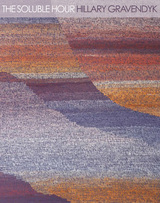
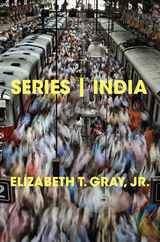
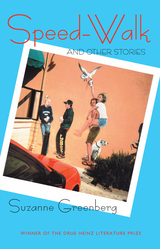
In selecting Suzanne Greenberg's fiction for the 2003 Drue Heinz Literature Prize, Rick Moody wrote, “A charge sometimes leveled against contemporary fiction these days is that it has abrogated its responsibility to depict civilization as it actually exists. . . . Speed-Walk replies forcefully to this aesthetic error by locating its protagonists in completely recognizable environments. . . . [They] are ever engaged by the routines of American life: walking the dog, eating at the sushi bar, doing the laundry.” Tightly written yet realistically spare, these stories provide a blueprint for survival when the unexpected is thrust into an ordinary life.
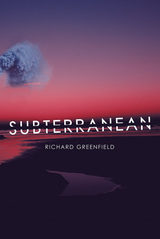
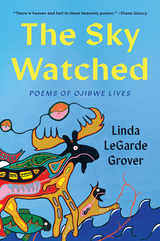
A collective memoir in poetry of an Ojibwe family and tribal community, from creation myth to this day, updated with new poems
Reaching from the moment of creation to the cry of a newborn, The Sky Watched gives poetic voice to Ojibwe family life. In English and Ojibwe, those assembled here—voices of history, of memory and experience, of children and elders, Indian boarding school students, tribal storytellers, and the Manidoog, the unseen beings who surround our lives—come together to create a collective memoir in poetry as expansive and particular as the starry sky.
This world unfolds in the manner of traditional Ojibwe storytelling, shaped by the seasons and the stages of life, marking the significance of the number four in the Ojibwe worldview. Summoning spiritual and natural lore, award-winning poet and scholar Linda LeGarde Grover follows the story of a family, a tribe, and a people through historical ruptures and through intimate troubles and joys—from the sundering of Ojibwe people from their land and culture to singular horrors like the massacre at Wounded Knee to personal trauma suffered at Indian boarding schools. Threaded throughout are the tribal traditions and knowledge that sustain a family and a people through hardship and turmoil, passed from generation to generation, coming together in the manifold power and beauty of the poet’s voice.
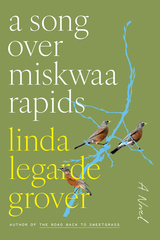
A fifty-year-old mystery converges with a present-day struggle over family, land, and history
When a rock is dislodged from its slope by mischievous ancestors, the past rises to meet the present, and Half-Dime Hill gives up a gruesome secret it has kept for half a century. Some people of Mozhay Point have theories about what happened; others know—and the discovery stirs memories long buried, reviving a terrible story yet to be told.
Returning to the fictional Ojibwe reservation in northern Minnesota she has so deftly mapped in her award-winning books, Linda LeGarde Grover reveals traumas old and new as Margie Robineau, in the midst of a fight to keep her family’s long-held allotment land, uncovers events connected to a long-ago escape plan across the Canadian border, and the burial—at once figurative and painfully real—of not one crime but two. While Margie is piecing the facts together, Dale Ann is confronted by her own long-held secrets and the truth that the long ago and the now, the vital and the departed are all indelibly linked, no matter how much we try to forget.
As the past returns to haunt those involved, Margie prepares her statement for the tribal government, defending her family’s land from a casino development and sorting the truths of Half-Dime Hill from the facts that remain there. Throughout the narrative, a chorus of spirit women gather in lawn chairs with coffee and cookies to reminisce, reflect, and speculate, spinning the threads of family, myth, history, and humor—much as Grover spins another tale of Mozhay Point, weaving together an intimate and complex novel of a place and its people.
Retail e-book files for this title are screen-reader friendly.
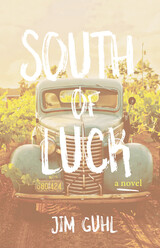
Hoping there are enough miles between the Twin Cities and dusty Milltown, Milo sets about trying to make the most of life without running water and electricity while trying to better understand his own place in the world and what it all means. His tough-guy act softens as he blends into the community and befriends an endearing group of small-town folks. And that’s lucky for him, because to stay safe, he’s going to need all the help he can get.
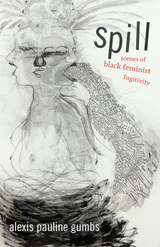
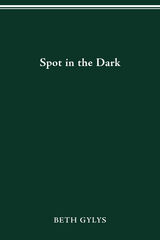
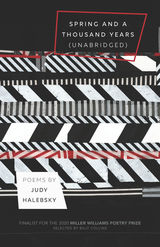
A translator’s notebook, an almanac, an ecological history, Judy Halebsky’s Spring and a Thousand Years (Unabridged) moves between multiple intersections and sign systems connected in a long glossary poem that serves as the book’s guide to what is lost, erased, or disrupted in transition both from experience to written word and from one language, location, and time period to another.
Writers Li Bai, Matsuo Bashō, Sei Shōnagon, and Du Fu make frequent appearances in centuries ranging from the eighth to the twenty-first, and appear in conversation with Grace Paley, Donald Hall, and Halebsky herself, as the poet explores subjects ranging from work and marriage to environmental destruction. Asking what would happen if these poets—not just their work—appeared in California, the poems slip between different geographies, syntaxes, times, and cultural frameworks.
The role of the literary translator is to bring text from one language into another, working to at once shift and retain the context of the original—from one alphabet to another, one point in time to another. These are poems in homage to translation; they rely on concepts that can bridge time and space, and as a result are as likely to find meaning in donuts or Zumba as they are to find it in the ocean. Spring and a Thousand Years (Unabridged) finds reasons for hope not in how the world should be, but in how it has always been.
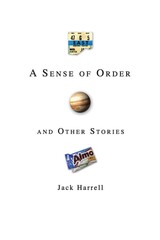
In another story, the LDS prophet is drawn to s simpler time when he could wander out unnoticed and buy a candy bar. Church Security won’t let him outside on his own and Public Relations won’t let him wear anything but a suit and tie. Still, the impulse to be a regular guy for an afternoon is compelling. Can’t he make his own decisions? He can, but what are the consequences?
And then there’s Jerry, who passes three men in suits who are talking and laughing at the loading dock behind an LDS temple. One of them looks up, drops a cigarette and crushes it, then slips into a nearby car. Another man—someone who has made Jerry’s life miserable—taunts him, saying: “Jerry, your goodness is your enemy …and tell all your friends.” Who is responsible? Maybe it’s the author’s reverie that’s to blame, but his stories have a way of getting deep inside the psyche and haunting us.
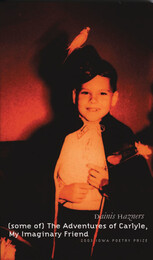
“Carlyle is spore, and mild. / He is swoon & sherbet.” Endearing and kind, if not actually cruel, he is also cold and strange. He shapeshifts, transforming into Magician and Jester, Surgeon and Scientist, Cloud; he studies fire and mirrors and bores holes in his own skull, looking for heaven. Throughout his many adventures, which range from the ludicrous to the life-threatening, he flies into the light and carries the reader with him on his perplexing and fanciful journey.
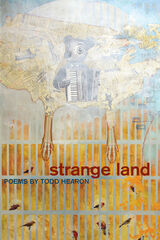
Todd Hearon’s haunting debut collection chronicles the twin paths of isolation and desire in the search for meaning and union with others. On his pilgrimage through the lost worlds of earth and the soul, the speaker encounters drought in both the literal and spiritual sense as he confronts desolate landscapes, from the brown remnants of ruined cities, to the depths of the human heart and man’s capacity for utter destruction. Yet even though he frequently encounters darkness, he never ceases to seek beauty. He is a man who wears many faces, from Adam, staring down a bleak future bereft of Paradise, to the doomed poet Shelley, drowned off the coast of Italy. He speaks as a man adrift in his own life, seeking an answer to his emptiness, an estranged traveler through memory and longing. Lyrical and intense, Strange Land is a quest for understanding and human connection.
Strange Land
It goes without saying
a word: the world under cover
of midnight snow, what we have known
of pageantry and lilac, leaf and song
subsumed in starless silence.
Waking at dawn into the tremulous blue
of the room, as in earth’s afterglow,
we lie, lidless, listening, as crows
call out the ear’s horizons.
What year is it? Into what country were we born
and now must make our way? Outside the pane
the stillness feels ancestral but the ghosts
not yours, not mine. My émigré,
we are cut off. An ocean to the east
churns in chiaroscuro while unseen
ranges to the south deflect our passage,
what passage might have been.
This country seems the passing of a dream
to a moonscape’s still immitigable white,
a land’s amnesia where against the sky
three needling black birds fly
and slip like an ellipsis out of sight.
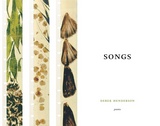
The poems in Derek Henderson’s Songs are “translations” of a film cycle of the same name, shot by American filmmaker Stan Brakhage (1933–2003) to document his and his family’s life in Colorado in the mid-1960s. Where Brakhage’s films provide a subjective visual record of his experience bewildered by the eye, these poems let language bewilder the space a reader enters through the ear. Henderson tenders the visual experience of Brakhage’s films—films of the domestic and the wild, the private and political, the local and global—into language that insists on the ultimate incapacity of language—or of image—to fully document the comfort and the violence of intimacy. Songs expresses the ecstasy we so often experience in the company of family, but it just as urgently attests to ecstasy’s turbulent threat to family’s stability. Like Brakhage’s films, Henderson’s poems carry across into language and find family in every moment, even the broken ones, all of them abounding in hope.
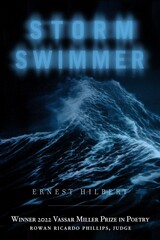
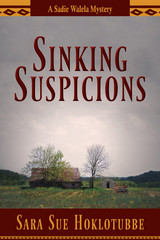
Iconic lawman Lance Smith joins a community-wide search, but Buck is nowhere to be found. As evidence mounts against her old friend, Sadie rushes to return home to help—only to be delayed by an island-wide earthquake and her own sinking suspicions.
A diverse cast of characters weave together a breathless story of murder, thievery, and the toll of war on the human spirit. In her effort to restore balance to her neighbor’s life, Sadie not only uncovers the truth, but unravels much more than a murder.
READERS
Browse our collection.
PUBLISHERS
See BiblioVault's publisher services.
STUDENT SERVICES
Files for college accessibility offices.
UChicago Accessibility Resources
home | accessibility | search | about | contact us
BiblioVault ® 2001 - 2024
The University of Chicago Press


